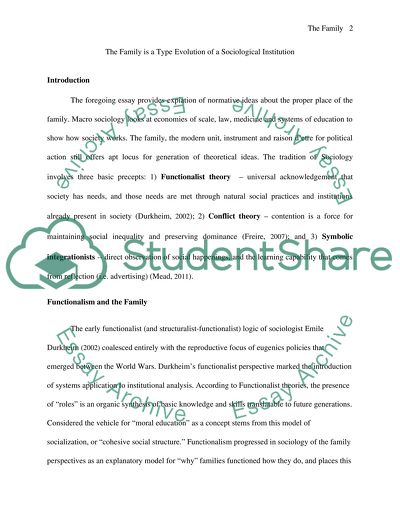Cite this document
(“The Family is a Type Evolution of a Sociological Institution Research Paper”, n.d.)
Retrieved from https://studentshare.org/sociology/1430103-family
Retrieved from https://studentshare.org/sociology/1430103-family
(The Family Is a Type Evolution of a Sociological Institution Research Paper)
https://studentshare.org/sociology/1430103-family.
https://studentshare.org/sociology/1430103-family.
“The Family Is a Type Evolution of a Sociological Institution Research Paper”, n.d. https://studentshare.org/sociology/1430103-family.


